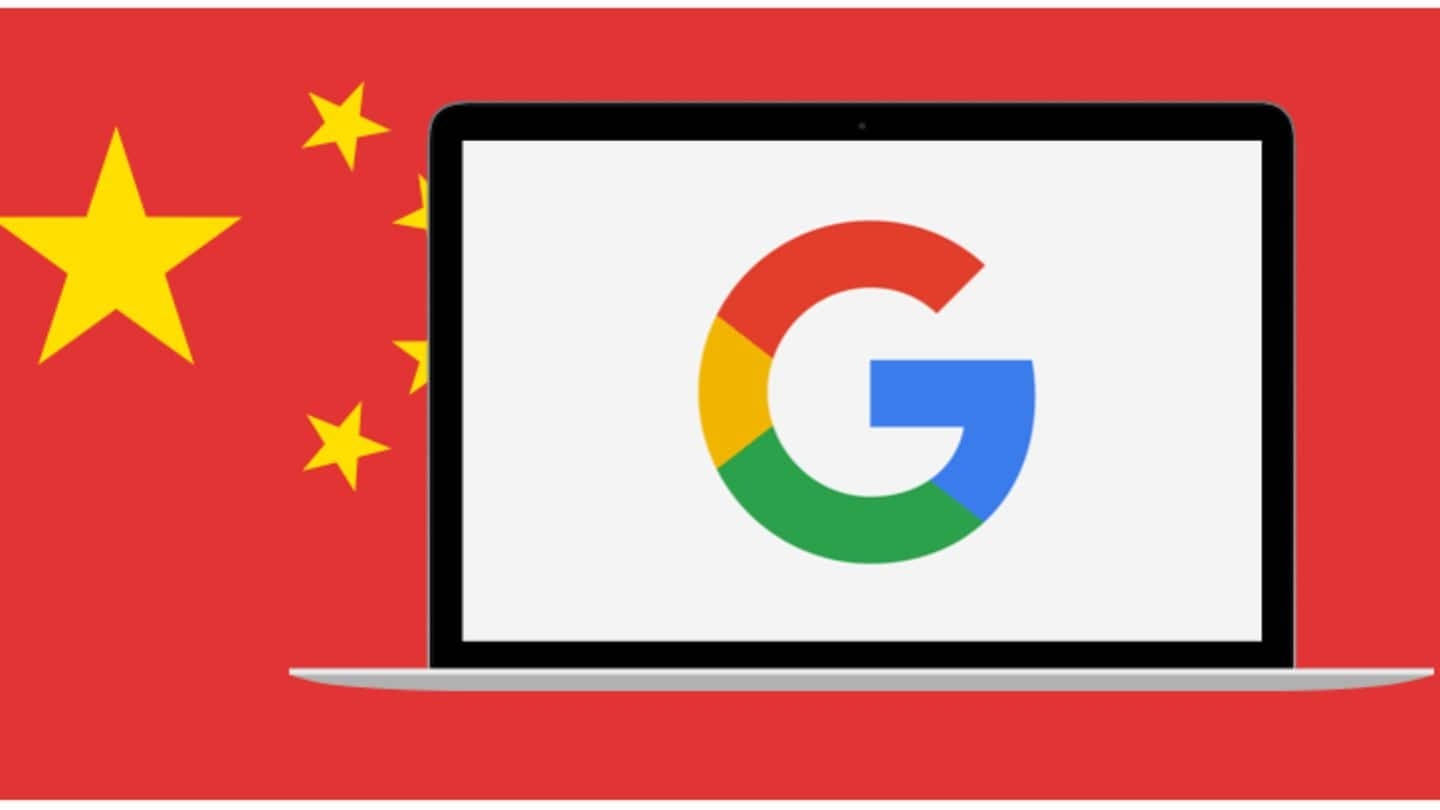
Google developing censored search for China; whatever happened to ethics?
What's the story
In a bid to enter China again, Google is reportedly planning to launch a censored version of its search engine that will blacklist websites and search results about democracy, human rights, religion, and peaceful protests, among other things.
First reported by investigative outlet The Intercept, Google's censored search engine project for China has been in the making since 2017.
Here's what we know.
Project Dragonfly
Google has already made a censored Android search app
According to documents provided to The Intercept by a whistleblower within Google, the project - codenamed 'Dragonfly' - was initiated in 2017 following a meeting between Google CEO Sundar Pichai and a top Chinese government official.
The search giant has already made a preliminary Android search app that follows the Chinese government's strict censorship guidelines, and it has been demonstrated to the government officials.
Blacklisting
How Google's search engine will censor its results
As far as the censorship mechanism is concerned, Google's censored search engine will automatically identify and exclude websites blocked by China's so-called Great Firewall.
Additionally, it will also "blacklist" some sensitive search queries, for instance "anti-communism", so that no search results are shown.
It's currently unclear whether Google is also planning to launch a desktop version of its censored search engine in China.
Launch
The censored search engine is expected to be launched soon
While the reactions and opinions of Chinese government officials on Google's custom, censored Android search app is unknown, the finalized version of Google's censored search engine is expected to be launched in the next six to nine months, pending approval from the Chinese government (of course).
Notably, this signals a marked shift in Google's policy towards China, where it is currently banned.
Quote
The source felt morally obligated to leak the documents
"I'm against large companies and governments collaborating in the oppression of their people, and feel like transparency around what's being done is in the public interest," the source told The Intercept, adding that Google's move might legitimize censorship, and "become a template for...other nations".
Ban
Google wasn't always banned in China, you know?
For those unaware, Google wasn't always banned in China.
From 2006-2010, Google operated in Chinese markets with a censored search engine, but was forced to change its policy, following a massive backlash in the US.
In March 2010, bowing to pressure, Google released an uncensored version of its search engine in China to promote free speech, following which the company was promptly, officially banned.
Ethics?
Google's China exit was lauded ethically; what about now?
Although Google lost the Chinese market following the ban, its policy of uncensored search did wonders for its PR and finances elsewhere, with many lauding the company's already well-known reputation for ethics.
But, well, times change, and it seems that Google is headed towards China again.
Neither Google, nor the Chinese Ministry of Foreign Affairs has made any comment on the issue yet.
Google & China
There are indications of Google warming up to China
Despite the Dragonfly project not being officially confirmed by Google or China, recent developments do indicate Google's improving relationship with China.
Pichai's alleged private meeting with Wang Huning, a leading figure in the Communist Party, in December 2017 was closely followed by several un-related announcements, including the launch of a Google AI research centre in Beijing, a Google file manager app for China, etc.
Don't be evil?
It is indeed saddening to see Google lean this way
This should come as a no-brainer, but China's 750 million internet users makes it a ripe, untapped market for Google. But, what happened to not being evil?
In a world of increasing corporate interest-driven ethical degradation, it is perhaps saddening to see Google, which recently bravely scrapped the US government's Project Maven, to lean to towards similar practices.
Ethical capitalism evidently remains a myth.